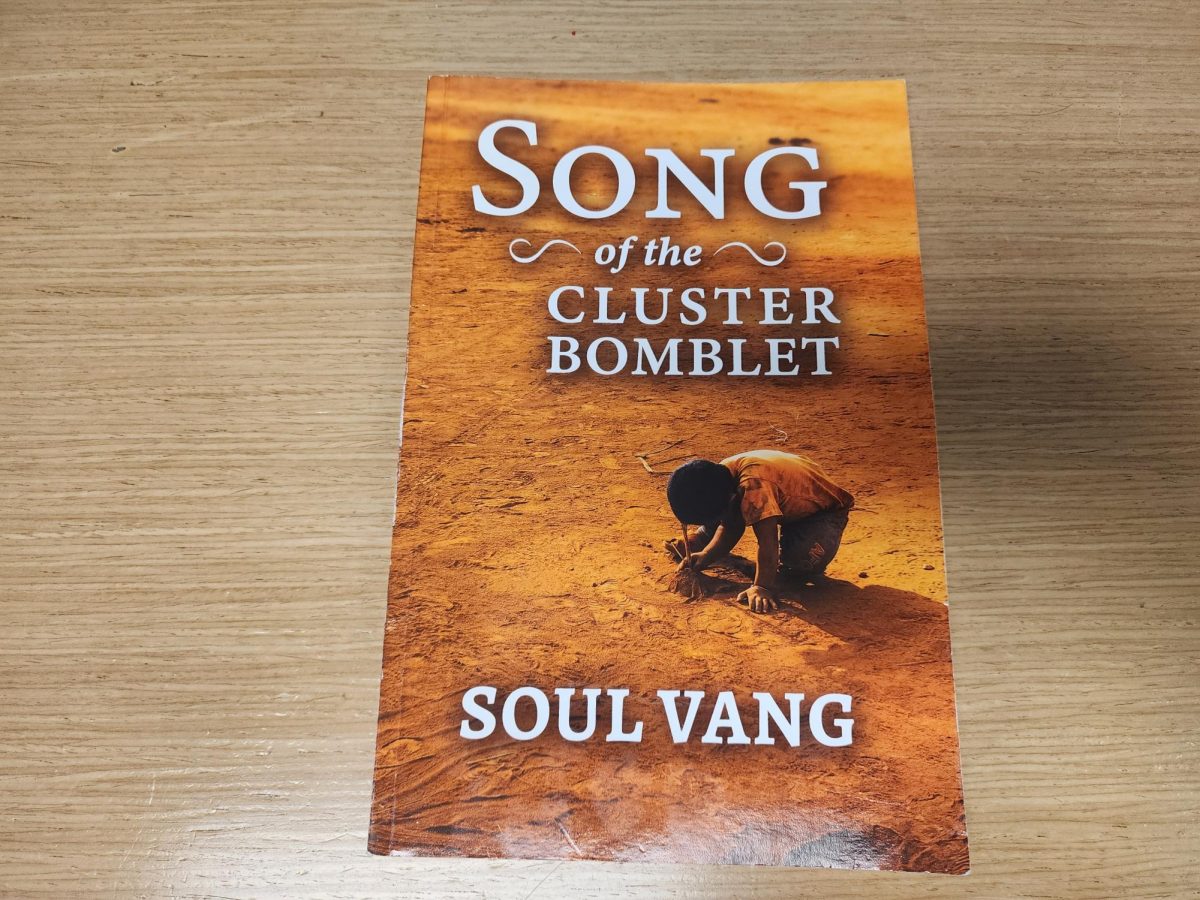Soul Vang, a U.S. army veteran, educator, and poet, explores his life, identity and Hmong culture in “Song of the Cluster Bomblet,” his latest book of poetry. Strewn throughout his book are details about his emotions of being raised in Hawaii and what it is like to be Hmong as Vang connects his journey through heartfelt words that describe his return to Fresno.
“At the end of my army tour, I not only returned home, I retreated into the deepest heart of the Hmong community in America: Fresno, California,” Vang writes.
This part of the story made me feel happy as a Fresno resident and poet myself. Vang goes beyond it being a home, but a place that fosters Hmong artists like himself.
Vangs’ poetry book inspires the next generation of Hmong Americans as he explores that with his own family, especially his daughter.
“It is good to have goals, and plans / To get you there. But there is no hurry.”
This part is encouraging his daughter to take things slow and not rush into anything. Instead, focusing on the present, which is simple and beautifully written advice. I was drawn to Vang’s simplicity in his poetry that makes me feel like I need to slow down to capture what’s being said in the lines.
Vang shares the Hmong culture with the reader by providing a look at the marriage ceremony to his wife.
“Then the wedding ceremony begins. A long table is placed in the center of the living room. The two Mej Koob — representatives for each of the families — sit at the head of the table, the hosts (in-laws) sit on one side, and the guests (groom and his companions) sit on the other.”
The description of the wedding ceremony was something that I learned from Vang. I appreciated that love for the culture that comes through in the poems and it made me want to learn more about my culture.
Vang also shares his experiences being in the military.
“There is my army life: Up at 6 am. Calisthenics. Six-mile run in company formation. Shower, then dress in pressed army fatigues. Breakfast at chow hall. From 8 am to 5 pm — with an hour break for lunch — there is work: keep records, order and inventory equipment and supplies, maintain weapons and vehicles ….”
In this chapter, Vang starts to question his life or where it’s going, as he gets asked this by a friend, Kayla. I found that in his poetic voice, he is already living the life that he wants to live.
“What am I going to do with my life? I thought it is pretty obvious that I am doing exactly what I want with my life, or rather, my lives.”
As I finished the book, the last poem Vang writes creates a reminder for the Hmong people that have been displaced. For me, it instilled upon me knowledge and awareness that I never considered before. The word choice that Vang uses in his last poem of the book is powerful — especially the capitalization of the word “MOMENTUM.” I thought that made it powerful as he calls out to the Hmong community.
“My Hmong brothers and sisters, I know / sometimes you feel powerless, don’t know what to do… / You’re stuck in place with nowhere to go. I want you to remember this word: MOMENTUM.”
This collection of poems is an impressive narrative that is lyrical about the displacement of people, while also providing a self-narrative of Vang’s life. It is no surprise that “Song of the Cluster Bomblet” is highly praised by Hmong writers like Mai Der Vang, author of “Yellow Rain.”
Hear readings from Vang during the Fresno Writer’s Summit on Saturday, Sept. 28 at the Smittcamp Alumni House. Register for the event here.




